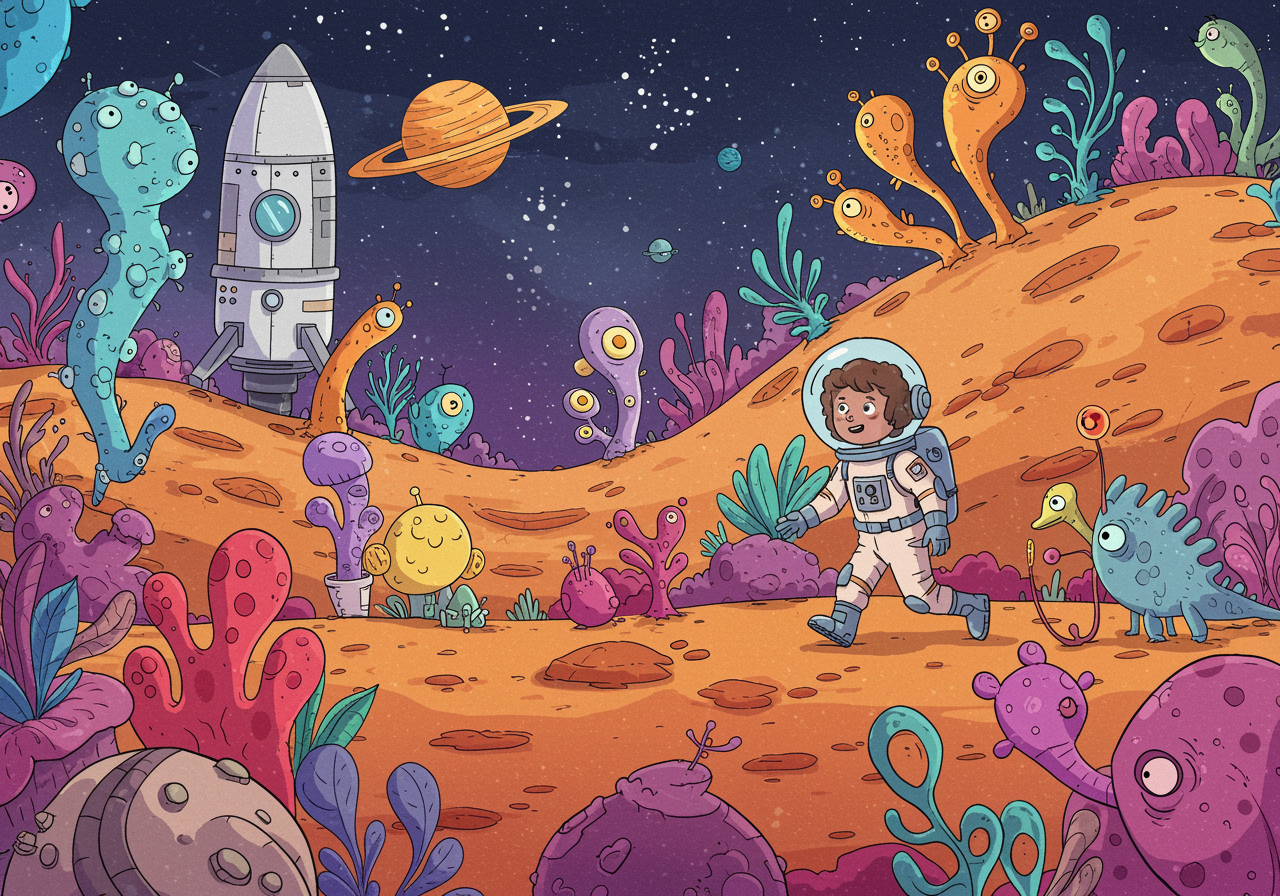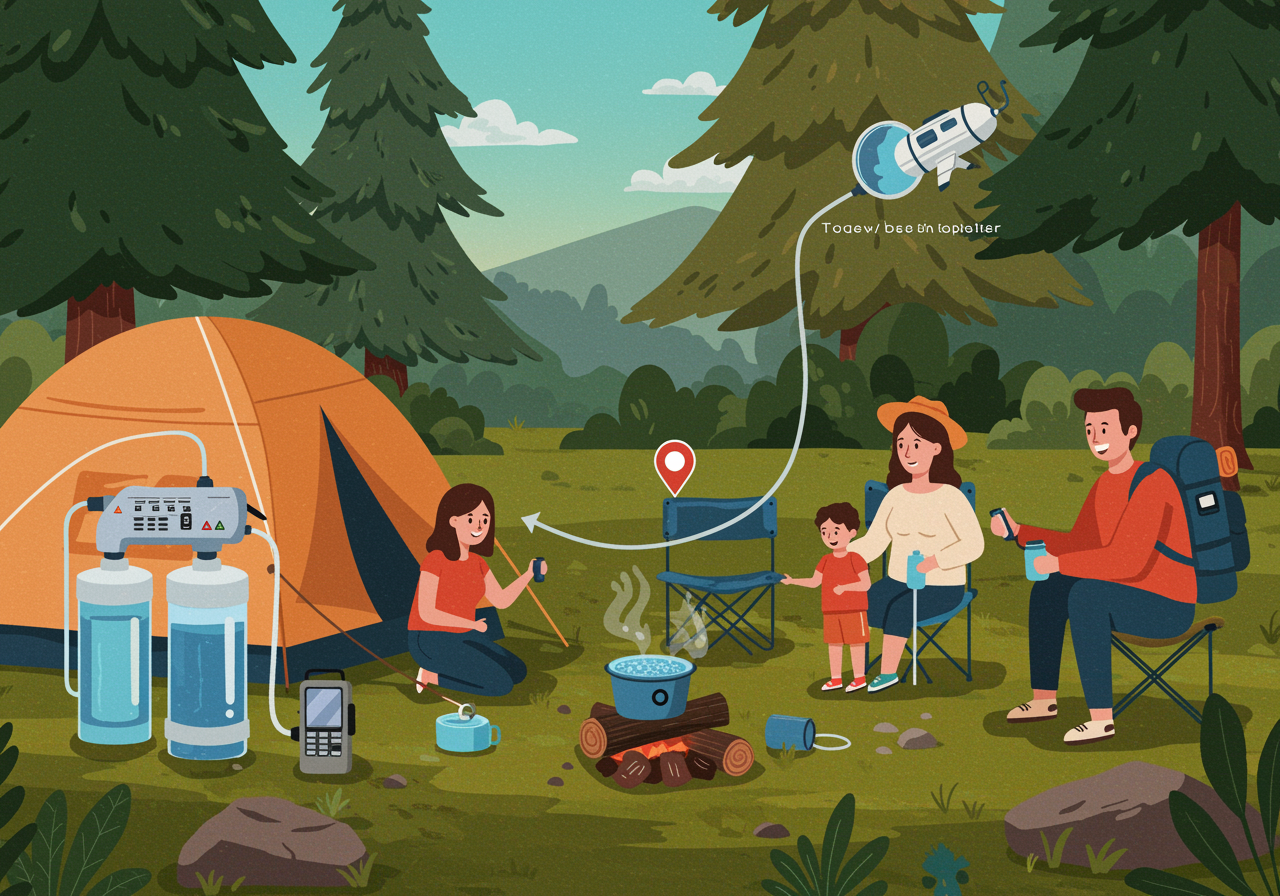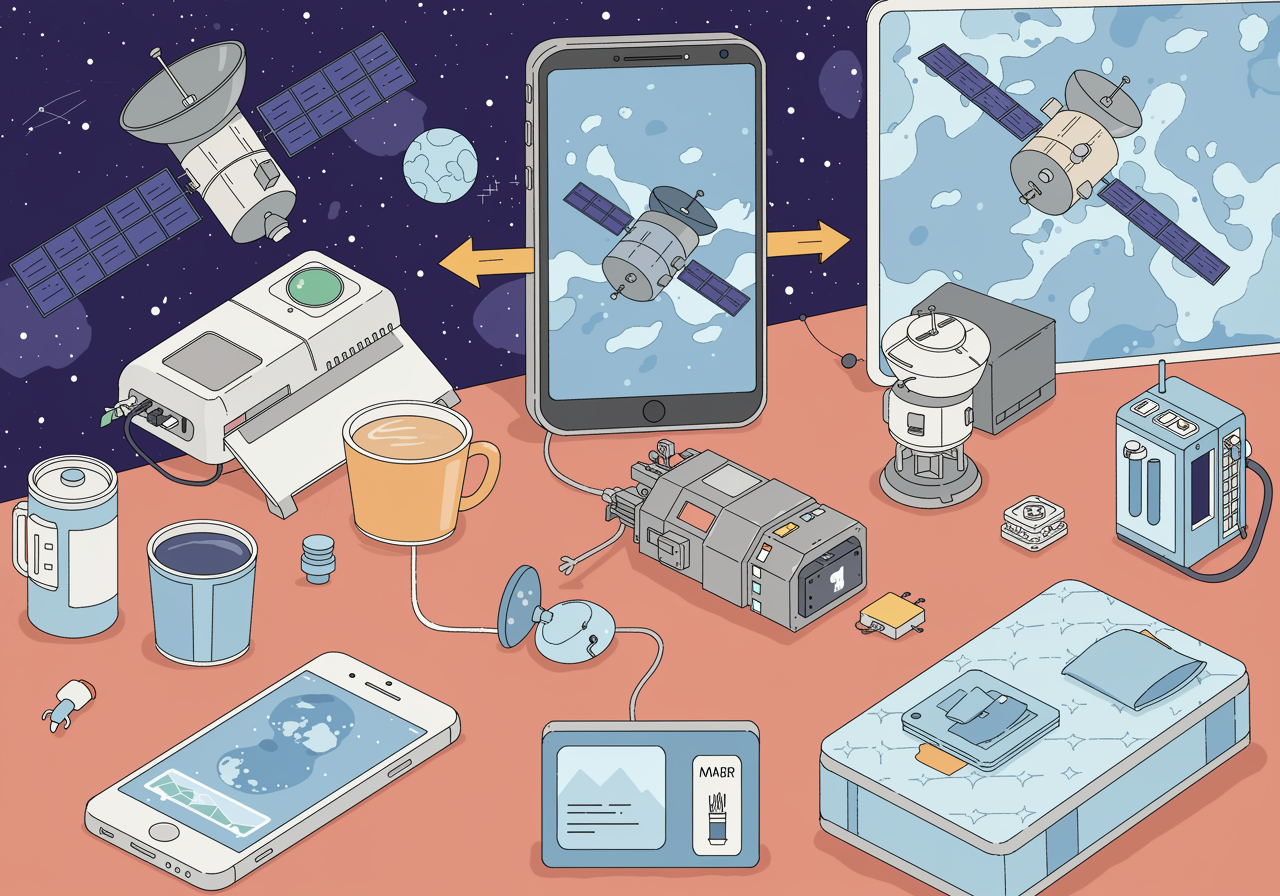Space Detectives: How Astronauts Became Earth’s Ultimate Problem Solvers

From memory foam to GPS – discover how shooting for the stars helps fix life on Earth!
Ever wonder how studying distant galaxies could help clean our oceans or how building rockets led to better running shoes?
Overview
Think about this: every time you use GPS to find the nearest pizza place, you're using space technology! When we study space, we don't just learn about distant planets – we accidentally invent amazing things that make life on Earth way better. From the memory foam in your mattress to the water filters that clean drinking water in remote villages, space research has given us thousands of everyday solutions. It's like having the universe as our ultimate research lab, helping us tackle everything from climate change to medical mysteries right here at home.

Understand in 30 Seconds
Get up to speed quickly
- Space Tech in Your Pocket: Your smartphone's GPS, camera, and even some apps use technology first developed for spacecraft and satellites orbiting Earth.
- Accidental Earth Heroes: Many things we use daily – like memory foam, water purifiers, and cordless tools – were created to solve space problems but ended up helping us on Earth.
- Earth's Health Check: Satellites act like doctors for our planet, monitoring climate change, tracking hurricanes, and helping farmers grow better crops.
- Problem-Solving Skills: Space missions teach us how to work with limited resources and solve complex problems – skills we use to tackle challenges like clean energy and disease.
Real Life Scenario
Situations you can relate to
Imagine you're planning the ultimate camping trip, but you can only bring what fits in a tiny backpack. You'd need super lightweight gear, water that stays clean forever, and food that doesn't spoil. Sound familiar? This is exactly what astronauts face every day! When NASA scientists figured out how to keep astronauts healthy in space, they accidentally invented water purification tablets that now help people in areas without clean water. When they needed astronauts to exercise in zero gravity, they created resistance bands that physical therapists use today. It's like every space problem becomes a gift for Earth – we just have to unwrap it!

Role Play
Spark a conversation with “what if” scenarios
What if you were a NASA engineer tasked with creating a better way to grow food in space?
- Role play: Research hydroponic gardens together and try growing herbs in water at home, discussing how this could help feed people in cities with no farmland.
What if satellites stopped working for a week – how would your daily life change?
- Role play: Try navigating without GPS for a day, checking weather without apps, and discuss all the 'invisible' ways space tech helps us.
What if you had to design a space suit that could also help doctors on Earth?
- Role play: Brainstorm how space suit features (temperature control, air filtration, communication) could improve medical equipment or help people with disabilities.
FAQs
Frequently asked questions people want to know
Why do we spend money on space when we have problems on Earth?
Space research actually helps solve Earth problems! Every dollar spent on NASA returns about $7 in economic benefits through new technologies and innovations we use daily.
What everyday things came from space research?
Memory foam, cordless tools, water filters, scratch-resistant lenses, freeze-dried food, and even the insulation in your winter jacket all came from space technology.
How do satellites help with climate change?
Satellites monitor Earth's temperature, track melting ice, measure sea levels, and help scientists understand how our climate is changing so we can make better decisions.
Examples in the Wild
See how this works day to day
- NASA's Earth-observing satellites helped track and predict the path of Hurricane Ian in 2022, saving thousands of lives through early warning systems (NASA Earth Science Division)
- Memory foam technology, originally developed for NASA aircraft seats, is now used in mattresses, wheelchair cushions, and prosthetic limbs worldwide (NASA Spinoff Technologies)
- The same water purification technology used on the International Space Station now provides clean drinking water to over 2 billion people in developing countries (NASA Technology Transfer Program)
- Satellite data helped farmers increase crop yields by 20% in 2023 by providing precise information about soil moisture and weather patterns (USDA Agricultural Research Service)
In Summary
What you should know before you start
- Space research creates technologies we use every day, from GPS navigation to water purification systems
- Studying space teaches us problem-solving skills that help tackle Earth challenges like climate change and disease
- Satellites act as Earth's monitoring system, helping us track weather, natural disasters, and environmental changes
- Investment in space exploration returns benefits to society through medical advances, environmental solutions, and everyday innovations
Pro-tip for Parents
You got this!
If your child says space research is 'useless' or 'a waste of money,' don't argue the point directly. Instead, play a fun game: spend a day together identifying all the space-derived technology you both use (GPS, weather apps, satellite TV, memory foam, etc.). Let them discover how 'useless' space research actually touches their life dozens of times each day. Sometimes the best way to change a mind is to let curiosity do the heavy lifting!

Keep an Eye Out For
Find these examples in everyday life
- News about new satellite launches or space missions – discuss what problems they might help solve on Earth
- Weather reports and hurricane tracking – point out how satellites make these predictions possible
- Stories about climate change research – many discoveries come from comparing Earth to other planets
- Medical breakthrough announcements – many trace back to research done in space or for space missions
Explore Beyond
Look up these related research topics
- How do astronauts stay healthy in space and what can this teach us about medicine on Earth?
- What would happen to modern life if all satellites stopped working tomorrow?
- How are scientists using space technology to fight climate change?
- What materials science breakthroughs from space missions are changing how we build things on Earth?